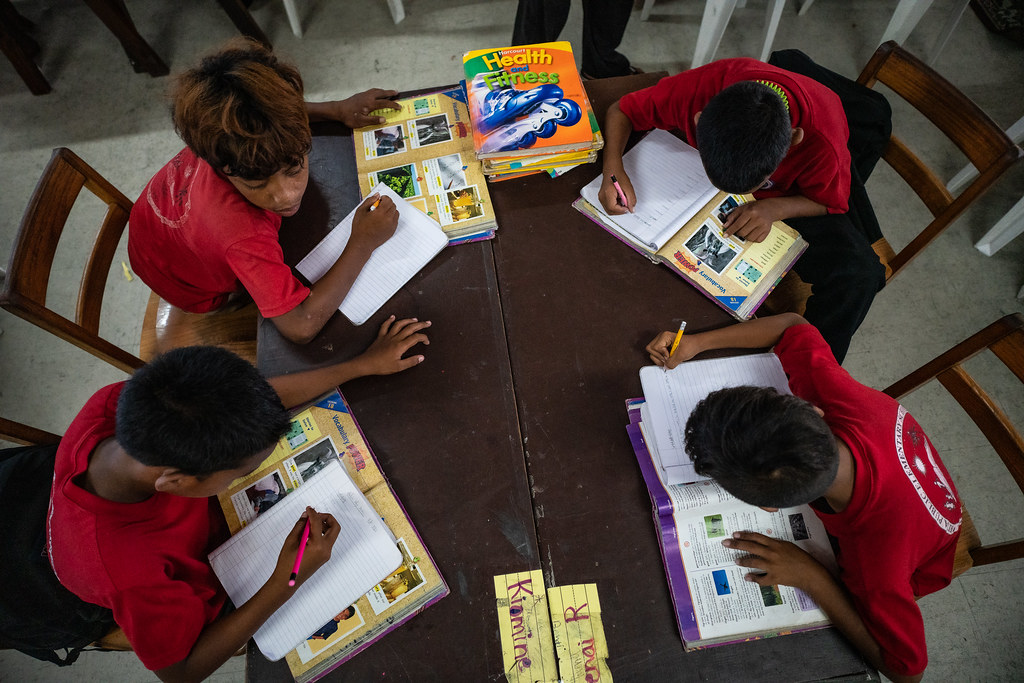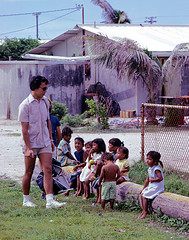Diese Unternehmen hat keine aktiven Jobs
0 Review
Rate This Company ( No reviews yet )
Information Company
- Alle Stellenanzeigen 0 Stellenanzeigen
- Kategorie Engineer
- Full Address 54 Rue Victor Hugo
Etwas über Unternehmen
National Training Council – Marshall Islands
RMI Education and Skills Strengthening Project
The Government of the Republic of Marshall Islands has received funding from the World Bank for the Education and Skills Strengthening Project (ESSP) cost. It means to use part of the profits for seeking advice from services.
The consulting services („the Services“) will help the Project Manager and the RMI National Training Council in executing the World Bank-funded task efficiently.
The project will focus on supporting the Project Implementation Unit (PIU) in producing a structure for Recognition of Prior Learning (RPL) for TVET, targeted at helping the College of the Marshall Islands and the RMI National Training Council examine and improve the abilities of workers through recognized college accreditation.
The in-depth Terms of Reference (TOR) for the project are shown in the attached Terms of Reference (ToR).
The National Training Council now invites qualified people („Consultants“) to show their interest in providing the Services. Interested Consultants ought to supply details showing that they have actually the needed qualifications and pertinent experience to carry out the Services (attach a Cover Letter of no more than 4 (4) pages addressing the mandatory experience and qualification requirements curriculum vitae with a description of experience in comparable tasks, similar conditions, etc). Firms‘ personnel might reveal interest through the using company for the task. In such a circumstance, only the experience and credentials of individuals shall be considered in the choice procedure. The criteria for electing the Consultant are: A.
Mandatory Qualifications and Experience Master’s degree in education, training
, management, or a related field. Minimum of 5-10 years of experience working in TVET System. Curriculum Design and Systems.
Have 2-5 years‘ experience designing and
executing RPL. frameworks, policies, and treatments. A sample of previous work will be required as proof of previous experience. Excellent interaction, training, and facilitation
skills. Experience with dealing with varied stakeholders, consisting of government. firms, TVET organizations, employers, and learners in the Pacific. B. Desired Qualifications and Experience Ability to deal sensitively in a multicultural
environment and build efficient group relationships with clients and appropriate stakeholders. The attention of interested Consultants (consisting of firms )is drawn to paragraphs 3.14, 3.16 and 3.17 of the World Bank’s“
Procurement Regulations for IPF Borrowers „July 2016 revised November 2020“ Procurement Regulations „, setting forth the World Bank’s policy on conflict of interest. Further information can be obtained at the address below during workplace hours, 0900 to 1700 local time. Expressions of interest must be
provided in a written form to the address below (face to face or by e-mail )by 5:00 pm, 23rd December 2024.
The subject line ought to state:“National Training Council Strategic Plan Consultant -full name of the candidate“. Julius Lucky Director National Training Council!.?.!ntcdr@ntcinfo.org:Phone: 692 625-4521 Empowering Community Champions for Sustainable Development in RMI Gender Equality, Climate Resilience and Water Safety Training Majuro,
Republic of the Marshall Islands: The fourth
Women and Youth Training for
Gender Equality, Climate Change, Disaster Risk Reduction and Water Safety Management has actually just recently occurred at the University of the South Pacific’s school in Majuro, the Republic of the Marshall Islands(rmi national training council ). This essential training was organized by the United Nations Development Programme( UNDP )Pacific Office through the Addressing Climate Vulnerability in the Water Sector(ACWA) project. The week-long capacity-building training intended to empower ladies and youth with the understanding and practices required for climate-resilient water safety management in the
Republic of the Marshall Islands(RMI ). This training enhances a dedication to improving RMI’s water security and neighborhood durability against climate change impacts, specifically females

and youth, ensuring that nobody is left behind. The training invited individuals from all 24 atolls and included resource speakers from government firms, non-governmental companies, and global advancement partners from the rmi national training council Environmental Protection Authority, Climate Change Directorate, Office of the Chief Secretary, Ministry of Culture and Internal Affairs, National Disaster Management Office, Women United Together Marshall Islands, RMI Human Trafficking Task Force, Waan Aelõñ in Majel, Jo-Jikum, and the International Organization for Migration. In her opening remarks, Secretary for the Ministry of Culture and Internal Affairs, Brenda Alik, underscored the significance of collective action in building a climate-resilient country.“It is our duty to come together and interact. As we face the difficulties presented by climate change, understanding its influence on our water resources is important for enhancing the well-being of neighborhoods throughout the Marshall Islands,“she stated.
RMI Environmental Protection Authority General Manager Moriana Philip highlighted in her speech the essential role of ladies and youth in dealing with climate-related challenges.“This workshop unites us from various neighborhoods to resolve the pressing concerns we deal with today, including climate-related challenges, especially on our water resources.“We wish to stress the important role of women and youth in this project as your involvement is instrumental to its success and beyond, „she said.
The very first day of the workshop covered important issues associated with gender equality, human rights, and public health within the Marshall Islands. It consisted of conversations on gender equality and mainstreaming, concentrating on the effects of environment change on water security and the out of proportion results on susceptible groups. The significance of integrating gender equality and social inclusion into all project aspects was also discussed. Human rights and human trafficking were dealt with, worrying the requirement for extensive defense of vulnerable populations
throughout emergencies. Additionally, the workshop resolved gender-based violence, highlighting the various types that can occur in catastrophe scenarios, such as domestic violence and sexual coercion. The agenda concluded with a concentrate on sanitation and health and their important function in health, livelihoods, school attendance, dignity, and structure resistant communities. ACWA Project Manager Koji Kumamaru revealed his appreciation to all participants

, stressing the value of their contributions to their communities.“Women and youth are crucial to the success of the ACWA task. More significantly, you are the champs and future leaders who will return to your communities to empower others,“he said. During the workshop, participants went to Rongrong Island and examined the 15,000-gallon Flatpack Modular water tank installed at the Rongrong High School Boys Dormitory as part of the ACWA job. The setup is a key component of the job, complemented by assistance from Australia
’s Department of Foreign Affairs and Trade. The go to served as an important firsthand experience of the positive effect of the ACWA project on the neighborhood and its
water resources. Marie Naisher from Jabat Island expressed her appreciation for the chance to sign up with the workshop and explained her desire to be part of the job when it reaches Jabat.
„This was my very first time participating in such training, and I found out so much from the visitor speakers, group activities, and the site go to. I now comprehend the significance of clean water and how to sanitize it. I’m fired up about the ACWA task concerning Jabat and ready to help when it gets here,“she said. Don Kobney, an ACWA site organizer from Santo, Kwajalein, also shared his enjoyment.“The workshop and website visit enhanced my self-confidence and understanding of the water tank setup.
Seeing the 15,000-gallon flatpack modular water tank firsthand gave me a clear understanding of the system, and I’m looking forward to sharing this knowledge with my neighborhood, „he said. By the workshop’s end, individuals were better equipped to comprehend climate change and its regional effects, drive adaptation and mitigation efforts, particularly in water safety, and make use of brand-new resources to affect their neighborhoods favorably. ACWA is enabled thanks to the support of the Green Climate
Fund, with the job co-financed by the Government of the Republic of the Marshall Islands
. The Marshall Islands: Skills Training and Vocational Education Project Examines the efficiency of the project and highlights lessons. Provides inputs to 2 wider assessments- the regional examination of ADB assistance for the Pacific and the unique evaluation research study on Millennium Development Goals. The low educational achievement and shortage of Marshallese skilled workers were mostly due to the low quality of fundamental education, lack of access to education in the outer islands, and weak points in abilities training and the professional and technical education system.
These supported an economy marked by high joblessness because of constrained economic sector growth and federal government downsizing. Unemployment was particularly high among the youth and ladies in the outer islands. Suitable regional knowledgeable personnel for existing job vacancies
were unavailable, thus the importation of appropriately experienced foreign workers. Thus, there was a mismatch in between offered tasks and abilities of the Marshallese labour force. These conditions offered the effort for the Government
of the Marshall Islands to prioritize technical and occupation education training reforms. In 2000, ADB approved a loan for $9.1 million to enhance skills training to provide trained employees needed for sustained economic and social advancement. This was to be achieved through an integrated national abilities training system. The job consisted of four components: development of a profession awareness program, skills training enhancement, boosted abilities training opportunities for women and youth, and institutional strengthening. The anticipated result was increased income-generating opportunities and employment for students, specifically women and youth in the outer islands. Overall, the task was ranked unsuccessful. Minimal development was achieved in making the project responsive to the requirements of its recipients and private-sector employers. The long-standing weak point of poor numeracy and literacy competencies
among public elementary and secondary school graduates and dropouts entering college or participating in voc-tech education could be partially attributed to the poor quality of fundamental education. The project was supply-driven and might not develop a strong linkage with economic sector requirements or align its activities with the requirements of the labour market. The status of the technical and trade education training system has actually remained basically the same after task completion. The research study put forward that ADB might encourage the Government of the Marshall Islands, through consultation and policy dialogue, to follow through on the federal government’s
commitment to developing a committed labour information system to link technical and vocational education training program offerings with industry demand. Although the job set up a labour market details system, in the absence of in-house personnel ability at the National Training Council, it was not completely operational.



